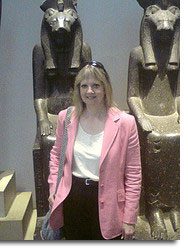From the beautiful, enchanting music of the faery harp to the sacred singing of elves or angels, Celtic literature has many references to a spiritual or supernatural dimension of music. Referrred to as ‘the Celtic Otherworld’ in Celtic and folklore studies, music in these sources is often prominently featured in this spiritual Otherworld dimension. There are numerous references to music throughout these sources, ranging from faery harpers, the songs of mermaids, the singing of elves, musical trees, melodious fountains, and so on.
Many of these references, primarily from the Old and Middle Irish literature of early medieval Ireland and Gaelic Scotland, had been previously collected into a collection for a major academic study entitled Music and the Celtic Otherworld (Edinburgh University Press, 2000). This volume explored the spiritual dimension of music from a specifically Celtic perspective, an interdisciplinary specialist musicology study with a focus on music itself as the primary focus, rather than from the perspective of Celtic folklore or religious studies per se. Musical references inclusive of both the earlier pagan, pre-Christian as well as Christian-related contexts about music were collected from the primary Old Irish and Gaelic Scottish manuscript sources for that volume.
In this paper, following a general introduction to the topic of music in the Celtic Otherworld in the Old Irish and Scottish Gaelic sources, seven separate sections will be presented, organised thematically:
1) Performers
2) Places and Times;
3) Healing
4) Birds and Animals
5) Dreams, Dreaming, and Music
6) Trance-like Sleep State
7) Grieving/Bereavement.
Each section will present several key examples of selected Celtic music references that specifically relate to that particular theme, followed by a few examples of relevant scientific research findings from a range of fields that relate to that theme. This is followed by a short Conclusion section at the end of the paper.

